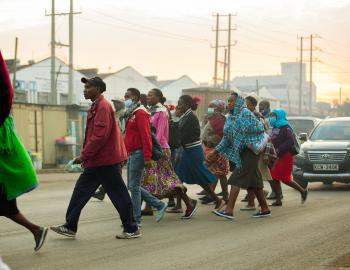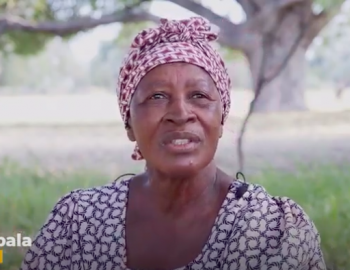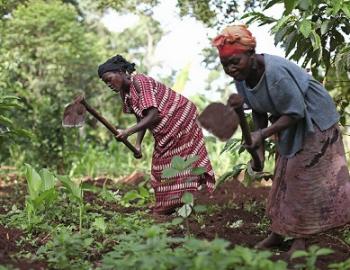POLICY BRIEF: Climate trends in Ethiopia: Summary of ACCRA research in three sites
POLICY BRIEF: Climate trends in Ethiopia: Summary of ACCRA research in three sites
A range of studies of national climate trends since the 1960s show that mean annual temperatures in Ethiopia have increased by between 0.5 and 1.3°C. In addition, the frequency of cold nights (linked to frost in dry season) has decreased significantly in all seasons. Although national models and missing data obscure regional differences in variability and trends, there is evidence of a declining trend in the February to April short rains from 1981-2000, and slight increases in the June to August long rains, as well as in October and November over the same period. Given the dependence on rain-fed agriculture, these trends could have a negative impact on food security. At the same time, flood events are also reported to be becoming more common, with significant disruptions from flooding occurring in 1997 and 2006.
This brief, Climate trends in Ethiopia: Summary of ACCRA research in three sites, summarises research conducted by the Africa Climate Change Resilience Alliance (ACCRA) in three sites in Ethiopia in 2010-11. It analyses the impacts of climate hazards, variability and change on livelihoods in all three locations, and concludes with key recommendations for action. The research analysed meterological data and community perceptions and was conducted by Haramaya University. Federal officials from the Ministry of Agriculture, and the Environmental Protection Authority took part in validating the research, alongside colleagues from various Wereda and Regional bureaus in Oromiya, Afar and Amhara Regional States.
The project, Africa Climate Change Resilience Alliance (ACCRA): Helping policy-makers understand rural adaptation, is a two-year DFID-funded programme that focuses on a high priority research area: adaptive capacity in rural livelihoods. It is a consortium that works to increase governments’ and development actors’ use of evidence in designing and implementing humanitarian and development interventions to increase poor and vulnerable communities’ adaptive capacity.
Further reading:
Project homepage:
Africa Climate Change Resilience Alliance (ACCRA): Helping policy-makers understand rural adaptation
Project summary:
Africa Climate Change Resilience Alliance (ACCRA): Helping policy-makers understand rural adaptation
Policy briefs:
Development interventions and adaptive capacity in rural Ethiopia
From local to national: Supporting local government action in climate change adaptation, disaster risk reduction and development planning
The national picture: climate trends in Uganda
Research papers:
Preparing for the future? understanding the influence of development interventions on adaptive capacity at local level in Ethiopia
Preparing for the future in Uganda: understanding the influence of development interventions on adaptive capacity at the local level



